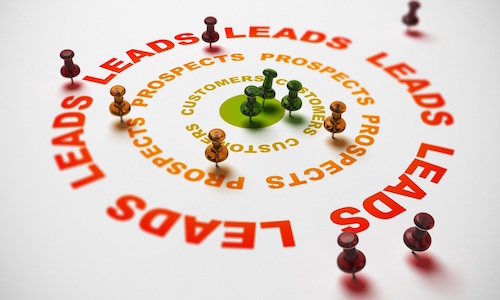Marketing Automation is Here to Save the Day
Marketing automation software is the superhero of the digital world. If you’re not using it yet, you’re missing out on a superpower that can streamline your business’s marketing efforts and free up your valuable time. We discuss how to implement marketing automation.
What is marketing automation software?
So, what exactly is marketing automation software? Simply put, it’s an all-in-one platform that allows you to manage all of your business profiles and pages in one place, with various tools and features to help you streamline and optimize your marketing campaigns.
After implementing marketing automation software, you can schedule and post content to multiple social media platforms simultaneously, track and analyze engagement metrics, and fine-tune your marketing campaigns to meet the specific needs of your business, customers, and industry.
But marketing automation software is more than just a social media management tool. It can also help you with email marketing campaigns, lead generation, customer behavior tracking, and more.

One of the most significant advantages of learning how to implement marketing automation software is the ability to track and analyze data from multiple sources, giving you deeper insights into your customers’ behavior and preferences. For example, you can track website traffic, social media engagement, and email open and click-through rates to get a better understanding of what content resonates with your audience.
This data can then be used to fine-tune your marketing campaigns, ensuring that you deliver the right message to the right people at the right time. With marketing automation software, you can create customized campaigns based on specific customer behaviors, such as abandoned carts or incomplete forms.
But the benefits of marketing automation software don’t end there. According to recent studies, businesses that use marketing automation software see a 451% increase in qualified leads and a 14.5% increase in sales productivity.
And it’s not just large businesses benefiting from marketing automation software. Small businesses, too, are seeing significant ROI, with studies showing that marketing automation software can reduce marketing overhead by up to 12%.
So, whether you’re a solopreneur or the head of a large enterprise, marketing automation software is a must-have tool that can save you time, boost your productivity, and help you reach your marketing goals. If you want assistance, simply contact a marketing automation implementation agency.
Benefit from Integrated Data Analysis and Reporting
Integrated data analysis and reporting are key benefits of marketing automation software that every business should consider. Using a powerful and easy-to-use platform, all your business profiles and pages can stream live in one place, providing valuable insights into your marketing campaigns.
While Google Analytics provides free website traffic analysis, it only gives you a partial picture of your marketing efforts. With marketing automation software, you can take data analysis one step further by evaluating not only your website traffic but also your social media interactions and the quality of your sales leads. This can be incredibly valuable in helping you fine-tune your marketing strategies, improve your lead generation and conversion rates, and ultimately grow your business.
Learning how to implement marketing automation software allows you to collect and analyze data across all your marketing channels, providing you with a comprehensive view of your customer journey. By tracking every interaction your prospects have with your brand, you can gain insights into their behaviors and preferences and create more personalized and targeted marketing campaigns that resonate with them.
Moreover, marketing automation software can provide real-time reports highlighting key performance indicators (KPIs) such as conversion, click-through, bounce, and revenue generated. These reports can be used to identify trends and patterns and to make informed decisions about future marketing campaigns.
According to a recent report by Market Research Future, the global marketing automation software market is expected to grow from $3.3 billion in 2017 to $6.4 billion by 2023, at a CAGR of 12.8% during the forecast period. This growth is driven by the increasing adoption of digital marketing, the need for personalized marketing strategies, and the rising demand for customer engagement.
Save Time with Repetitive Social Media Tasks
Social media is a vital component of any digital marketing strategy, and it is essential to ensure that your business is visible and active on social media platforms. However, managing social media accounts can be time-consuming and challenging, especially for small businesses or those without dedicated social media teams. Fortunately, marketing automation software can help businesses save time and effort by automating repetitive social media tasks.

According to recent statistics, approximately 3.78 billion people worldwide use social media, with the number of social media users increasing by more than 10% annually. With such a large audience, businesses need to ensure that they have a robust social media presence to reach and engage with their target audience effectively. Marketing automation software can help achieve this goal by automating tasks such as post-scheduling, content curation, and social media monitoring.
One of the key benefits of marketing automation software is the ability to schedule social media posts in advance. This means businesses can plan and schedule their social media content weeks or even months in advance, ensuring a consistent flow of content without the need for daily manual posting. This automation saves time and allows businesses to focus on other essential tasks such as content creation, audience engagement, and lead generation.
In addition to scheduling posts, marketing automation software can help businesses automate other social media tasks, such as content curation. Curating relevant and engaging content for social media can be a daunting task. Still, marketing automation software can automate this process by suggesting content to share based on keywords, industry trends, or other factors. This saves time and ensures that businesses can share high-quality content consistently.
Another benefit of marketing automation software is social media monitoring. Social media is a 24/7 platform, and monitoring social media accounts for mentions, comments, and messages can be overwhelming. Marketing automation software can automate this process by providing real-time notifications and alerts, allowing businesses to respond promptly to customer inquiries, complaints, or feedback.
Track Email Marketing Campaigns with Insights
Email marketing is an essential part of any marketing strategy. It allows businesses to reach out to their customers directly and engage with them personally. However, monitoring the effectiveness of an email campaign can be daunting, especially when dealing with many recipients.
That’s where the marketing automation software comes in to help. It allows you to track your email marketing campaigns easily and precisely, providing insightful data on your campaigns’ performance. With this data, you can make data-driven decisions and fine-tune your email campaigns to improve their effectiveness and achieve better results.
Marketing automation software offers many features that can help you track and analyze your email campaigns. You can track open, click-through, bounce, and conversion rates, among others. These metrics give you a clear picture of how your emails perform and help you identify areas where you can improve your campaigns.
One of the most significant advantages of using marketing automation software for email campaigns is that it allows you to personalize your emails. Personalized emails are more effective at engaging customers and generating conversions than generic emails. Marketing automation software can help you segment your email list based on customer behavior and preferences, allowing you to send personalized emails to each segment.
Furthermore, marketing automation software can help you automate your email campaigns, saving you time and effort. You can create email sequences that are triggered automatically based on customer behavior, such as signing up for your newsletter or abandoning a shopping cart. This ensures that your customers receive timely and relevant emails, increasing the chances of conversion.
Rate Customer Behaviors and Score Leads
Behavior analytics collects and analyzes how customers interact with your brand, including their preferences, buying habits, and browsing behavior. With marketing automation software, you can track all of these interactions in real time, giving you a detailed understanding of your customers and their needs.

On the other hand, lead scoring is the process of assigning a score to each of your leads based on their behavior and level of engagement with your brand. Doing so lets you identify which leads are most likely to convert into customers and which ones require more nurturing.
Behavior analytics and lead scoring go hand in hand because the data collected through behavior analytics inform lead scoring. For example, if a lead visits your website multiple times, engages with your social media posts, and opens your emails regularly, they are more likely to have a higher lead score than someone who only visits your website once and doesn’t engage with your content.
But why is this important? According to research by Marketing Sherpa, companies that use lead scoring experience a 77% increase in lead generation ROI. This is because lead scoring allows you to prioritize your efforts on the leads most likely to convert, leading to more efficient and effective marketing campaigns.
Moreover, lead scoring can also help you personalize your marketing efforts. By understanding each lead’s specific interests and behaviors, you can tailor your messaging and content to better resonate with them. According to a study by Epsilon, personalized emails have an average open rate of 29.3%, compared to a 22.2% open rate for non-personalized emails.
Cut Cost Per Lead with One Easy-to-Use Platform
Marketing is all about generating leads and ultimately converting them into paying customers. However, the lead generation process can be costly and time-consuming. That’s where marketing automation comes in and has proven to be a game-changer in the marketing world. By adopting marketing automation, businesses can streamline their marketing processes, reduce costs, and ultimately generate more leads.
One of the most significant benefits of marketing automation is that it cuts down on the cost per lead (CPL). The traditional lead generation methods are costly, time-consuming, and require a considerable workforce. But with marketing automation, businesses can streamline their lead generation processes by automating repetitive tasks. This includes automating email campaigns and social media posts and tracking customer behaviors to gain valuable insights.

With marketing automation, businesses can create targeted campaigns tailored to their customer’s specific needs. Businesses can use data analysis and reporting tools to segment their customers based on their interests, behaviors, and demographics. This allows them to create personalized content that resonates with their target audience, resulting in higher engagement and leads.
Moreover, implementing marketing automation tools enables businesses to optimize their marketing campaigns through A/B testing. A/B testing allows businesses to test two campaign variations to see which performs better. Businesses can refine their marketing campaigns by analyzing the results to ensure they generate the maximum number of leads at the lowest cost possible.
In addition, marketing automation platforms offer an all-in-one interface that allows businesses to manage all their marketing efforts from one place. This means businesses can save time and effort by easily scheduling posts and tracking their progress. Furthermore, by having all their marketing data in one place, businesses can gain valuable insights into their customer behaviors, informing future marketing efforts.
Continuity and Improved Customer Experience
When it comes to social media marketing, consistency is key. According to a study by Hubspot, companies that published 16 or more blog posts per month got almost 3.5 times more traffic than companies that published between zero and four monthly posts. Moreover, businesses that published more than 16 blog posts per month also got nearly 4.5 times more leads than companies that published zero to four monthly posts.
But posting regularly is easier said than done. It takes time and effort to come up with quality content that your audience will find interesting and engaging. And even if you have great content, you need to post it at the right time when your audience is most active online. This is where the marketing automation software comes in.

Using a marketing automation platform, you can schedule posts in advance, ensuring your content is published at the right time and consistently. You can also track the engagement and performance of your content, making it easy to fine-tune your strategy and make data-driven decisions. This way, you can improve the customer experience and establish a strong online presence that keeps your customers engaged and coming back for more.
Learning how to implement marketing automation software also allows you to streamline your social media efforts across multiple platforms, including Facebook, Twitter, Instagram, and LinkedIn. By managing all your profiles in one place, you can save time and effort and avoid the hassle of logging in and out of different accounts. You can also use the platform to collaborate with team members and clients, making managing your social media campaigns easier and ensuring everyone is on the same page.
Benefits of Implementing Marketing Automation and Next Steps
Ultimately, learning how to implement marketing automation software is critical to help you improve your social media marketing efforts and cut costs by reducing the time and effort needed to manage your campaigns. By streamlining your workflows and providing valuable insights into customer behavior, marketing automation can help you generate more leads, improve the customer experience, and establish a strong online presence that keeps your customers engaged and loyal.
Are you ready to take your marketing efforts to the next level with digital marketing automation? Oyova, as a marketing automation implementation agency, can help. Contact us today to learn more about our marketing automation programs and how we can help you streamline your marketing processes, increase efficiency, and ultimately grow your business. Let’s work together to make your marketing dreams a reality.



